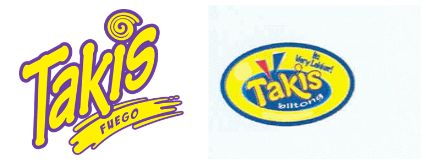On 14 December 2023, the South African Supreme Court of Appeal ("SCA") handed down its judgment in the case of Grupo Bimbo S.A.B. v Takis Biltong, a trade mark judgment that has people talking and involved the following:

Pic Credits: Law Libary
A Mexican and a South African
The names are a bit of a giveaway, but for the record, the Mexican company is Grupo Bimbo S.A.B., whereas the South African company is Takis Biltong (Pty) Ltd. Grupo Bimbo uses the trade mark TAKIS FUEGO (stylised), a mark which is registered in South Africa in class 30 for various foodstuffs, with the registration going back to 2012. Grupo Bimbo became involved in a dispute with Takis Biltong (Pty) Ltd, which has a 2007 trade mark registration for the mark TAKIS BILTONG in class 29 for meat. For the benefit of non-South African readers, biltong is a type of dried meat (think jerky if you're American), and it's very popular in South Africa.
Expungement of a trade mark registration
Section 24 of the South African Trade Marks Act deals with entries "wrongly made" or "wrongly remaining" on the register. Takis Biltong applied to cancel the registration for TAKIS FUEGO under Section 24. The first court dismissed the application. The next court, however, disagreed with this finding and granted the order to expunge the registration on the basis that the marks were confusingly similar. Special leave to appeal this decision was sought.
Some words on special leave to appeal
In order to get special leave, it is necessary to show something more than the existence of reasonable prospects of appeal. In the earlier case of Cook v Morrison and Another, the court held that "the existence of reasonable prospects of success is a necessary but insufficient precondition for the granting of special leave... more, by way of special circumstances is needed.. (this) may include that the appeal raises a substantial point of law...(and) that the prospects of success are so strong that a refusal of leave would result in a manifest denial of justice."
The SCA was of the view that there was "a sound rational basis to conclude that there is a reasonable prospect of success on appeal." With the result, the SCA ended up hearing a case about biltong!
The SCA's findings
The court considered various issues:
A likelihood of deception and confusion
The attack on the registration for TAKIS FUEGO was based on various sections of the Trade Marks Act.
- Section 24, which allows an interested party to apply for rectification of the register in respect of an entry "wrongly made in or wrongly remaining on the register".
- Section 10(12), which talks of a mark that is "inherently deceptive or the use of which would be likely to deceive of cause confusion".
- Section 10(14), which talks of a mark that is "identical to a registered trademark belonging to a different proprietor or so similar thereto that the use thereof... would be likely to deceive or would cause confusion".
- Section 10(17), which deals with identity or similarity to a registered trade mark which is "e" in South Africa.
Similar marks
Judge Kathree-Setiloane said that Takis is the "dominant, integral or essential element' of the two marks. It is an invented word. Unlike Fuego (fire in Portuguese), which is non-distinctive and has 'no trademark significance". The two marks TAKIS BILTONG and TAKIS FUEGO are confusingly similar.
Similar goods
The judge described both parties' goods as "snack foods". The judge went on to say that "snack foods such as biltong and related snack products are sold... side by side to other snack products including crisps / chips, ice-cream, popcorn, peanuts and nuts in general."
Whenever the issue of similarity of goods comes up, courts refer to the famous old UK case of British Sugar, sometimes referred to as the Treats case. In that case a UK court said that in order to determine whether goods are similar a number of factors need to be considered:
- The respective uses and users of the goods;
- The physical nature of the goods;
- The trade channels;
- The location of goods in supermarkets;
- The issue of whether the goods are competitive.
The upshot
The registration for TAKIS FUEGO had been wrongly entered on the register and it was therefore cancelled.
The content of this article is intended to provide a general guide to the subject matter. Specialist advice should be sought about your specific circumstances.

